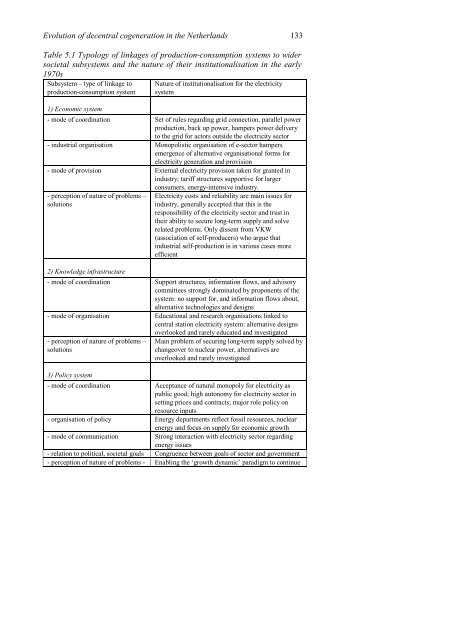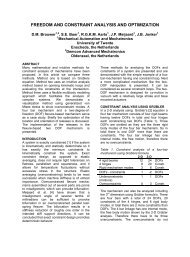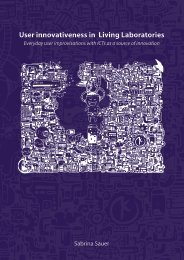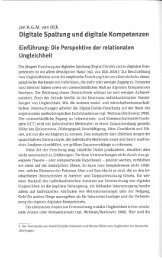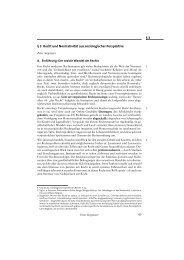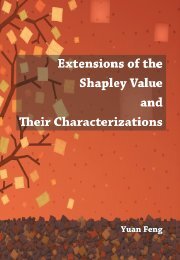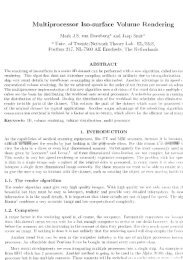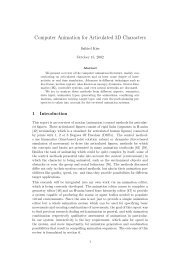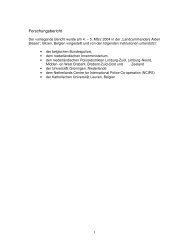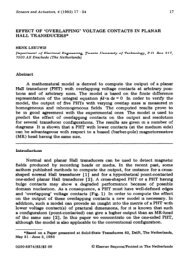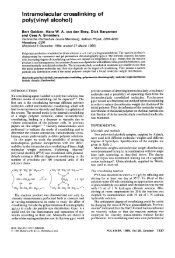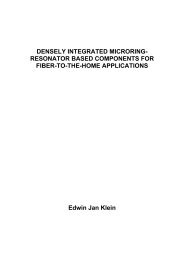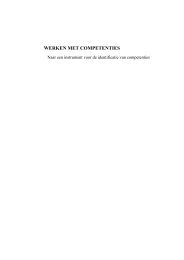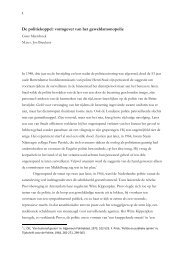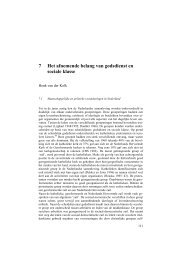Innovation and institutional change: the transition to a sustainable ...
Innovation and institutional change: the transition to a sustainable ...
Innovation and institutional change: the transition to a sustainable ...
Create successful ePaper yourself
Turn your PDF publications into a flip-book with our unique Google optimized e-Paper software.
Evolution of decentral cogeneration in <strong>the</strong> Ne<strong>the</strong>rl<strong>and</strong>s 133<br />
Table 5.1 Typology of linkages of production-consumption systems <strong>to</strong> wider<br />
societal subsystems <strong>and</strong> <strong>the</strong> nature of <strong>the</strong>ir <strong>institutional</strong>isation in <strong>the</strong> early<br />
1970s<br />
Subsystem – type of linkage <strong>to</strong><br />
production-consumption system<br />
1) Economic system<br />
Nature of <strong>institutional</strong>isation for <strong>the</strong> electricity<br />
system<br />
- mode of coordination Set of rules regarding grid connection, parallel power<br />
production, back up power, hampers power delivery<br />
<strong>to</strong> <strong>the</strong> grid for ac<strong>to</strong>rs outside <strong>the</strong> electricity sec<strong>to</strong>r<br />
- industrial organisation Monopolistic organisation of e-sec<strong>to</strong>r hampers<br />
emergence of alternative organisational forms for<br />
electricity generation <strong>and</strong> provision<br />
- mode of provision External electricity provision taken for granted in<br />
industry; tariff structures supportive for larger<br />
consumers, energy-intensive industry.<br />
- perception of nature of problems –<br />
solutions<br />
2) Knowledge infrastructure<br />
Electricity costs <strong>and</strong> reliability are main issues for<br />
industry, generally accepted that this is <strong>the</strong><br />
responsibility of <strong>the</strong> electricity sec<strong>to</strong>r <strong>and</strong> trust in<br />
<strong>the</strong>ir ability <strong>to</strong> secure long-term supply <strong>and</strong> solve<br />
related problems. Only dissent from VKW<br />
(association of self-producers) who argue that<br />
industrial self-production is in various cases more<br />
efficient<br />
- mode of coordination Support structures, information flows, <strong>and</strong> advisory<br />
committees strongly dominated by proponents of <strong>the</strong><br />
system: no support for, <strong>and</strong> information flows about,<br />
alternative technologies <strong>and</strong> designs<br />
- mode of organisation Educational <strong>and</strong> research organisations linked <strong>to</strong><br />
central station electricity system: alternative designs<br />
overlooked <strong>and</strong> rarely educated <strong>and</strong> investigated<br />
- perception of nature of problems –<br />
solutions<br />
3) Policy system<br />
Main problem of securing long-term supply solved by<br />
<strong>change</strong>over <strong>to</strong> nuclear power, alternatives are<br />
overlooked <strong>and</strong> rarely investigated<br />
- mode of coordination Acceptance of natural monopoly for electricity as<br />
public good; high au<strong>to</strong>nomy for electricity sec<strong>to</strong>r in<br />
setting prices <strong>and</strong> contracts; major role policy on<br />
resource inputs<br />
- organisation of policy Energy departments reflect fossil resources, nuclear<br />
energy <strong>and</strong> focus on supply for economic growth<br />
- mode of communication Strong interaction with electricity sec<strong>to</strong>r regarding<br />
energy issues<br />
- relation <strong>to</strong> political, societal goals Congruence between goals of sec<strong>to</strong>r <strong>and</strong> government<br />
- perception of nature of problems - Enabling <strong>the</strong> ‘growth dynamic’ paradigm <strong>to</strong> continue


